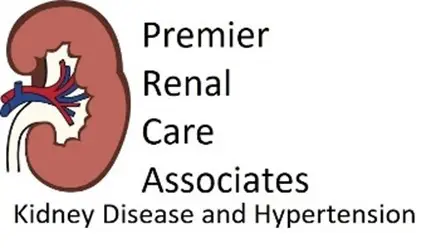Helpful Patient Information
A kidney stone is, as the name implies, a hard mass that forms when chemicals, such as calcium oxalate, form crystals in the urine that stick together. These crystals may continue to grow to form stones that range in size from a grain of sand to a ping-pong ball.
Kidney stones are one of the most common problems affecting the urinary tract across the world. According to the National Institute of Health, more than 10 million people are found to have kidney stones yearly. Once you have one stone, you are more likely to have another unless preventative measures are taken to prevent stone formation.
By age 70, 12 percent of men and 5 percent of women are affected by stones. Kidney stones are more common in men; only one in five patients with kidney stones are women.
Normally, our urine contains some substances that increase stone formation and other substances that inhibit stone formation. Some people have a higher concentration of those substances that form stones (calcium, for example), and have lower concentration of those substances that decrease the likelihood of stone formation (citrate, for example).
For those who have an increased likelihood of forming stones, these factors may contribute to stone formation:
- Not enough water intake
- Blockage of urinary tract
- Repeated or chronic kidney diseases
- Certain medications
- Blockage of urinary tract
- Genetic and metabolic diseases
Some may never have any symptoms if the stones remain small and don’t cause an obstruction. When stones get big enough to stop urine flow, the following symptoms may occur:
- Severe pain in kidney, flank, radiating to groin
- Inability to find a body position which provides relief
- Fever, chills, and weakness
- Blood in urine
- Nausea and vomiting
- Decreased urine output
First, X-rays, CT scans, or ultrasound may help to find if you have kidney stones. Once kidney stones are found, it is very important to find out which kind of stone you have so they can be prevented. This requires that a 24-hour urine collection be done.
Regardless of the type of stone, you must increase your water intake. Based on the type of stone you have, we may give you a medication to prevent the stone or give a medication to dissolve the stone (calcium oxalate stones cannot be dissolved).
Once the stone is removed, you must see a kidney doctor to prevent additional stone formation. Based on blood and urine tests, we will recommend diet and medication changes to prevent further stone formation. REMEMBER, STONE DISEASE IS PREVENTABLE, and we will show you how to prevent it.
You have two kidneys, each the size of a fist, located at the lower back end of your ribcage. Each kidney contains up to a million units called nephrons (nfrns). The kidneys consist of two major compartments: the blood compartment, which is basically a very small blood vessel, and the urine compartment, which consists of tubules (tbyls).
In the tubules, chemicals and water are removed based on the body’s needs. The urine from the tubules eventually drains into the middle of the kidney. From here, each kidney drains the urine into the bladder, where it sits until it is excreted from your body.
Chronic kidney disease includes any condition that damages your kidneys and decreases their ability to keep you healthy by doing the jobs listed. By doing blood tests, urine tests, and kidney ultrasound, your kidney doctor is able to identify whether you have kidney disease and the extent of your kidney disease. As kidney disease progresses, toxic wastes can build to high levels in your blood and make you feel sick.
You may develop complications like high blood pressure, anemia (low blood count), weak bones, poor nutritional health, and nerve damage. Also, kidney disease increases your risk of having heart and blood vessel disease.
The primary functions of the kidneys are to:
- Remove waste products from the body
- Balance the body’s fluids
- Release hormones that regulate blood pressure
- Synthesize the vitamins which control growth
- Control the production of red blood cells
Unlike heart disease, which causes chest pain, or gastrointestinal disease, which causes belly pain, kidney disease may not cause any symptoms until it is advanced. Once the kidney disease progress and wastes begin to build in your bloodstream, the following symptoms may occur:
- Often no symptoms in the earlier stages (I-III)
- Feeling tired or weak
- Headaches
- Itching
- Nausea and vomiting
- Loss of appetite
- Swelling
- Shortness of breath
- A metallic taste in your mouth
- Darkening of the skin
- Trouble concentrating
- Change in urination
- Diabetes mellitus
- Hypertension
- Race: African-American, Hispanic, Pacific Islander, and Native Americans
- Age > 65
- Relative with CKD
- Keeping blood pressure under control: that is < 130/80 or 125/75 if you have diabetes or protein in the urine
- Taking certain types of medication called ACE-Inhibitors or Angiotensin Receptor Blockers
- For diabetics, keeping blood sugars under control with HbAIc less than 6.0. This requires frequent monitoring of your blood sugars
- Avoiding medication that will damage your kidneys, such as non-steroidal anti-inflammatory drugs (NSAIDS). Examples are ibuprofin, Advil, Motrin, Aleve, Celebrex and Naprosyn
- Avoiding Fleets® Phospho-soda and Fleets® Enema
- Avoiding, if possible, IV contrast used for CT scans and heart catheterizations
- Controlling your cholesterol
- Quitting smoking
- If overweight, losing weight
- Treating anemia, if present
